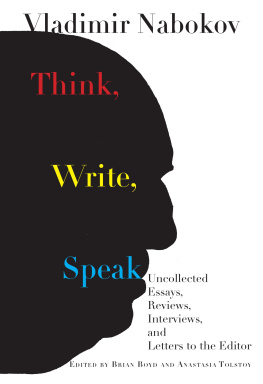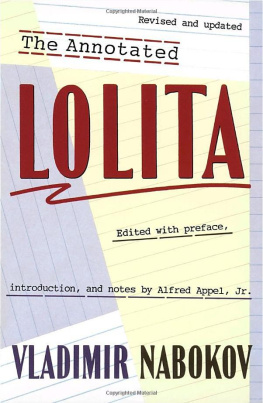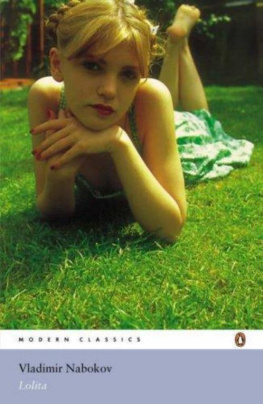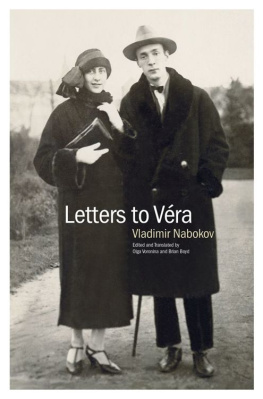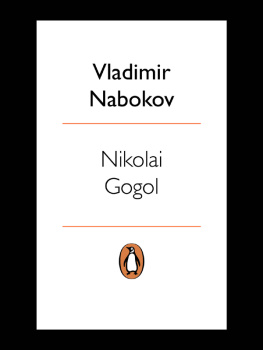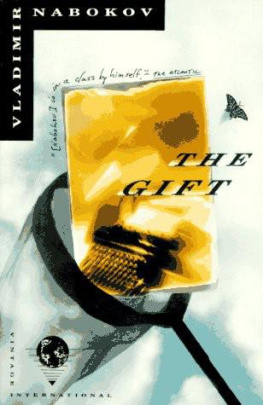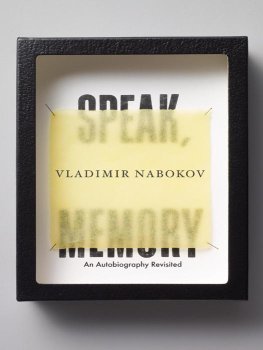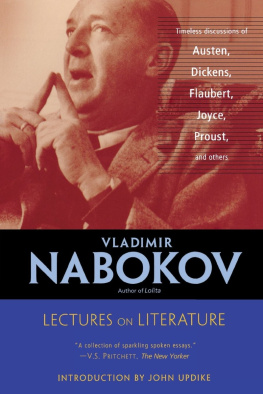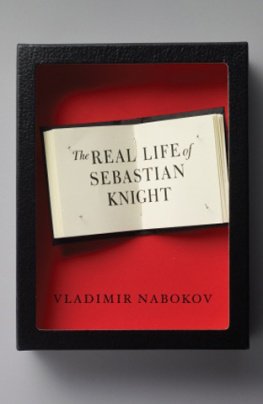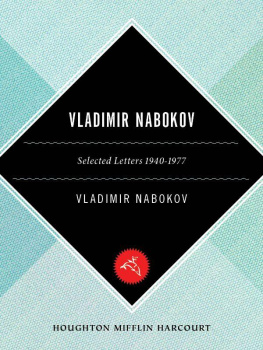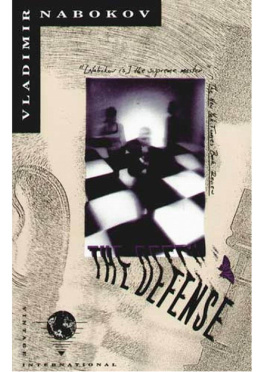Vladimir Nabokov - Lectures on Don Quixote
Here you can read online Vladimir Nabokov - Lectures on Don Quixote full text of the book (entire story) in english for free. Download pdf and epub, get meaning, cover and reviews about this ebook. year: 1984, publisher: Mariner Books, genre: Detective and thriller. Description of the work, (preface) as well as reviews are available. Best literature library LitArk.com created for fans of good reading and offers a wide selection of genres:
Romance novel
Science fiction
Adventure
Detective
Science
History
Home and family
Prose
Art
Politics
Computer
Non-fiction
Religion
Business
Children
Humor
Choose a favorite category and find really read worthwhile books. Enjoy immersion in the world of imagination, feel the emotions of the characters or learn something new for yourself, make an fascinating discovery.

- Book:Lectures on Don Quixote
- Author:
- Publisher:Mariner Books
- Genre:
- Year:1984
- Rating:4 / 5
- Favourites:Add to favourites
- Your mark:
- 80
- 1
- 2
- 3
- 4
- 5
Lectures on Don Quixote: summary, description and annotation
We offer to read an annotation, description, summary or preface (depends on what the author of the book "Lectures on Don Quixote" wrote himself). If you haven't found the necessary information about the book — write in the comments, we will try to find it.
Lectures on Don Quixote — read online for free the complete book (whole text) full work
Below is the text of the book, divided by pages. System saving the place of the last page read, allows you to conveniently read the book "Lectures on Don Quixote" online for free, without having to search again every time where you left off. Put a bookmark, and you can go to the page where you finished reading at any time.
Font size:
Interval:
Bookmark:
LECTURES ON DON QUIXOTE
Nabokov's rendering of a seventeenth-century windmill
Contents
EDITOR'S PREFACE - vii
FOREWORD by Guy Davenport - xiii
The Lectures
INTRODUCTION -
TWO PORTRAITS: DON QUIXOTE AND SANCHO PANZA - 13
STRUCTURAL MATTERS - 27
CRUELTY AND MYSTIFICATION - 51
THE CHRONICLERS THEME, DULCINEA, AND DEATH - 75
VICTORIES
AND DEFEATS 89
NARRATIVE AND COMMENTARY PART ONE (1605) 113
NARRATIVE AND COMMENTARY PART TWO (1615) 157
APPENDIX (Sample Passages from Romances of Chivalry) 213
Editor's Preface by Fredson Bowers
When Vladimir Nabokov entered the United States in 1940 to begin his new life in this country, he brought with him, according to his own account,* a number of lectures for the academic career that faced him. The present series on Cervantes's Don Quixote, however, was especially written when he was given leave of absence from his regular position on the Cornell University faculty so that he could accept a visiting appointment at Harvard University in the spring semester of the academic year 1951-52.
Among the Harvard General Education courses inaugurated about five years earlier was Humanities 1, 2, the first semester devoted to the epic taught by the classicist John H. Finley, Jr., and the second, to the novel taught by Professor Harry Levin. Both had been influential in setting up the General Education program, in which Humanities 1, 2 had become a showpiece. From time to time Professor Levin was forced to meet commitments in other departments that required a substitute for Humanities 2: I. A. Richards, Thornton Wilder, and Vladimir Nabokov were to fill in for him as occasion served. According to Professor Levin's memory, he gave it as his opinion in talking with Nabokov about the works to be taught that Don Quixote was the logical starting point for discussing the development of the novel. Nabokov agreed with this opinion so strongly that he set about preparing a series of lectures on Cervantes specifically for the course, to be followed by his already prepared Cornell
* Vladimir Nabokov, Strong Opinions, New York: McGraw-Hill, 1973, p. 5.
lectures on Dickens, Gogol, Flaubert, and Tolstoy. No evidence is preserved to show that the Cervantes lectures were given later at Cornell on Nabokov's return.*
Nabokov prepared for his Harvard duties, and the new Cervantes lectures, with especial care. His first act, it would seem, was to write out an extensive chapter-by-chapter summary of the entire work. Since his teaching methods relied heavily on quotation from the author under discussion, this summary consisted in part of his own narrative and in part of copied-out or noted quotations, both punctuated by various personal comments on the action, the dialogue, the characters, and the themes. The text he used was the translation of Don Quixote by Samuel Putnam, published by the Viking Press in 1949 and subsequently reprinted by Random House in the Modern Library. Almost all page references in the manuscripts were keyed to this edition (not to be confused with the abridged Viking Portable against which Nabokov specifically warned his students). However, he suggested that the paperback Don Quixote, translated by J. M. Cohen for Penguin Books in England (1950), would be acceptable.
The copy of the Putnam translation Nabokov utilized for his own written-out notes and lectures has not been preserved, but his Penguin paperback is in the possession of the Nabokov family. This copy contains pencil lines drawn in the margins against a number of passages but, disappointingly, only a notation or two, such as the query "Victory? Defeat?" against part one, chapter 9, or "Ducal theme Begins" against part two, chapter 30. The evidence is not clear whether this was actually Nabokov's teaching copy (there could have been problems with the quotations in his lectures keyed to the Putnam page numbers); but fortunately the matter is of small concern owing to its almost complete lack of annotation, of no use here to an editor.
The Narrative-Commentary section, which in the present volume follows the six formal lectures, reproduces Nabokov's original summary of the novel, written out and then typed in a form that could be mined as necessary. After Nabokov had thus familiarized himself thoroughly with the novel by constructing this Narrative-Commentary, he made his first attempt at the active preparation of the lectures themselves. Here the
* At one time or another in his literature courses at Cornell University Nabokov lectured severally on Jane Austen, Dickens, Stevenson, Joyce, Flaubert, Proust, Kafka, Tolstoy, Gogol, Turgenev, Chekhov, Dostoevski, and Gorki. For the texts of these lectures, see Lectures on Literature (New York and London: Harcourt Brace Jovanovich/Bruccoli Clark, 1980) and Lectures on Russian Literature (New York and London: Harcourt Brace Jovanovich/Bruccoli Clark, 1981).
evidence of the manuscripts suggests that initially he conceived of a narrative analyzing the structure of Don Quixote on the basis of the comprehensive theme of Victories and Defeats. The evidence further confirms that he wrote out a preliminary version of such a lecture series at considerable length.
In working up this study, he abstracted numerous pages from the original typed Narrative-Commentary and considerably altered their chronological order to fit the new central theme. Handwritten pages of elaboration, extension, and more detailed commentary linked the rearranged typed pages to fit them into the imposed thematic Victories and Defeats discussion. Only later, after this draft had been completed did the more varied thematic subjects for the present six lectures form in his imagination as a structural concept superior both to the chronological survey of his original notes and to the simple opposition of Victories and Defeats as a peg on which to hang the narrative.
For the final form of these six lectures, then, as they were delivered and are now preserved in their six folders, Nabokov made a further rewriting in which he abstractedas he needed the materialvarious pages from the Victories and Defeats draft, as well as additional pages from the original Narrative-Commentary notes to add to his new lecture pages. He deleted the material on the typed pages that was not to be used, and thus worked these pages into his handwritten final manuscript. The sixth chapter, on Victories and Defeats, was completely rewritten according to a new formula. Only some forty-odd pages, about a fifth of the original Narrative-Commentary notes, remained segregated in a folder, unused either in the draft or in the final lectures. To reconstitute the original Narrative-Commentary for this volume its typed pages (identifiable by their pagination) have been recovered from the discarded manuscript of the Victories and Defeats draft, and the handwritten portions of this manuscript have been added, as appropriate, to the lectures or else inserted in the Narrative-Commentary. Additional pages have been utilized in part from the manuscript of the six lectures to recover the typed material that had been deleted after Nabokov had inserted what he wanted from these pages in the final six-lecture manuscript. The scattered pages of this Narrative-Commentary, thus assembled and added to the forty or so unutilized pages of the original that had been set aside, now comprise the Narrative-Commentary section, with only a few pages missing from the whole.
The reconstruction of the original of this section produced a certain amount of repetition both of comment and of quotation earlier abstracted
for use in the six lectures: such material has been removed so that any covering of the same ground in the Narrative-Commentary is in the nature of an expansion or fitting-in of the discourse as found in the lectures. This necessary editing of the material has entailed various editorially inserted bridge passages to link quotations that were for Nabokov but suggestive notes for possible elaboration; moreover, various quotations have been expanded because of their intrinsic interest and a few new ones added for the pleasure of the reader. To replace the few leaves that have been lost, a limited number of plot summaries have been inserted to preserve the continuity.
Next pageFont size:
Interval:
Bookmark:
Similar books «Lectures on Don Quixote»
Look at similar books to Lectures on Don Quixote. We have selected literature similar in name and meaning in the hope of providing readers with more options to find new, interesting, not yet read works.
Discussion, reviews of the book Lectures on Don Quixote and just readers' own opinions. Leave your comments, write what you think about the work, its meaning or the main characters. Specify what exactly you liked and what you didn't like, and why you think so.

